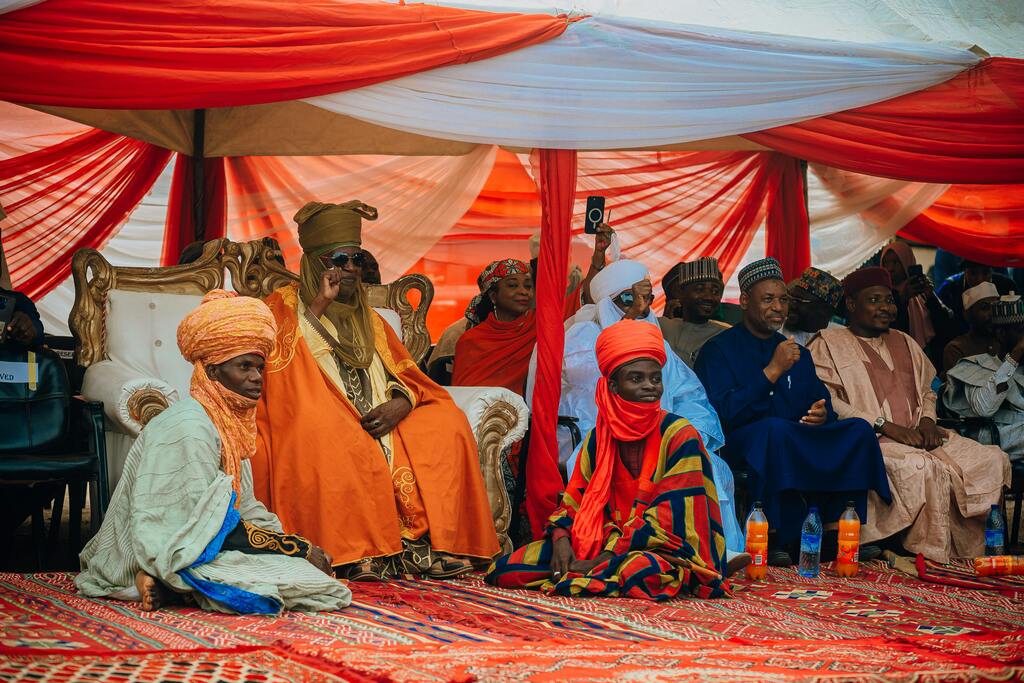Abuja: West Africa
Lagos, Abuja, Abidjan, Freetown, Monrovia, Lomé
Exploring Abuja: A Travel and Business Guide for Flights from Ghana
Abuja, the capital city of Nigeria, is a well-planned metropolis that blends modern infrastructure, political power, and natural beauty. Known for its clean environment, government institutions, and iconic landmarks, Abuja stands out as a key destination for both business and leisure travelers from Ghana and across Africa.
Whether you're visiting Abuja for a corporate meeting, a government engagement, or simply to explore the heart of Nigeria, the city offers a calm, organized atmosphere with plenty to experience.
Why Visit Abuja from Ghana?
Business: As the political and administrative capital of Nigeria, Abuja is a hub for diplomatic missions, multinational companies, NGOs, and conferences. It's a key destination for anyone working in government affairs, development, energy, or infrastructure.
Tourism: Although more understated than Lagos, Abuja offers unique landmarks, natural attractions, and a chance to experience Nigeria at a slower, more deliberate pace.
Culture: Abuja reflects Nigeria’s diversity, with residents from across the country and a mix of ethnic traditions, modern art, and religious architecture. It's a cultural center in its own right.
Flight Options from Ghana to Abuja
Direct Flights: You can fly directly from Accra (Kotoka International Airport) to Nnamdi Azikiwe International Airport (ABV) in Abuja via airlines such as:
Africa World Airlines (AWA)
Air Peace
Asky Airlines
Connecting Flights: Additional options are available with layovers in cities like Lagos, Lomé, or Addis Ababa, via airlines like Ethiopian Airlines, Turkish Airlines, and EgyptAir.
Flight Time: A direct flight takes approximately 1.5 to 2 hours, making Abuja an easy and quick international destination from Ghana.

What to Do in Abuja: Attractions & Experiences
1. Iconic Landmarks
Aso Rock – A massive rock formation that dominates the skyline and sits behind the Presidential Villa. While you can’t access the villa, you can visit nearby viewpoints.
National Mosque – One of the most prominent Islamic landmarks in West Africa, the Abuja National Mosque is a stunning architectural site, open to visitors outside prayer times.
National Christian Centre – This cathedral represents Nigeria’s Christian community and features modern design and vibrant stained-glass art.
2. Parks & Natural Beauty
Millennium Park – Abuja’s largest public park, great for picnics, walking, or relaxing in well-manicured green space.
Jabi Lake – A peaceful waterfront location where you can enjoy boat rides, local food, and views of the city. There's also a nearby shopping mall.
Zuma Rock – Located just outside Abuja, this giant monolith is often called the "Gateway to Abuja." A great spot for photos and sightseeing.
3. Arts, Culture & Museums
Thought Pyramid Art Centre – A creative space showcasing contemporary Nigerian art, with rotating exhibitions and cultural events.
Nike Art Gallery (Abuja Branch) – Featuring handcrafted works, textiles, and traditional Nigerian art by local artisans.
Abuja Arts and Crafts Village – A great place to buy handmade goods and souvenirs including pottery, jewelry, and carvings from across Nigeria.
Where to Stay in Abuja: Hotels for Every Traveler
Luxury Hotels
Transcorp Hilton Abuja – One of the city's most iconic hotels, perfect for business travelers. It offers world-class service, multiple restaurants, conference spaces, and a central location.
Fraser Suites Abuja – A luxury serviced apartment hotel with spacious rooms, great for long stays or travelers who want upscale comfort.
Sheraton Abuja Hotel – A classic choice with extensive business amenities, restaurants, and proximity to government institutions.
Mid-Range Hotels
Nordic Hotel – A stylish and quiet hotel known for Scandinavian-inspired décor and excellent service.
Grand Pela Hotel & Suites – Popular with business travelers for its comfort and good location near the airport road.
Hawthorn Suites by Wyndham – Offers apartment-style rooms with kitchenettes, ideal for extended stays or travelers who prefer more space.
Budget Options
Tranquil Mews Hotel – A clean and affordable option for budget-conscious travelers.
Hotel Reno – Close to Jabi Lake, this hotel offers decent comfort at a reasonable price, with a pool and gym.
SV Chrome Hotel – A boutique budget hotel with stylish interiors and a solid reputation for value and comfort.

Top Restaurants in Abuja: Where to Eat
Fine Dining
Nkoyo Restaurant – Located inside the City Park, offering a calm setting and a menu that blends continental, Nigerian, and Asian cuisines.
Bukka Restaurant (Transcorp Hilton) – Upscale buffet dining with a wide selection of traditional Nigerian dishes in a refined atmosphere.
The Vue – Offering Asian fusion cuisine and rooftop views. Perfect for a business dinner or romantic night out.
Local & Casual Dining
Wakkis – A long-standing favorite for Indian cuisine, featuring open-flame cooking and a lively outdoor terrace.
The Charcoal Grill – A relaxed setting for grilled meats, jollof rice, and other West African classics.
Jevinik Restaurant – Popular for generous portions of Nigerian dishes like egusi soup, pounded yam, and pepper soup in a casual atmosphere.
Business Tips for Traveling to Abuja from Ghana
Time Zone: Abuja operates on West Africa Time (GMT+1) — one hour ahead of Ghana.
Currency: The local currency is the Nigerian Naira (₦). Most upscale venues accept cards, but cash is still widely used for smaller purchases.
Language: English is the official language and used for all business communication.
Transport: Ride-hailing apps like Bolt and Uber are common. Private taxis and hotel shuttles are also widely used for business meetings.
Etiquette:
Formal attire is expected for meetings.
Personal relationships and introductions matter — Nigerians value trust in business.
Be punctual, but also flexible with time as delays are not uncommon.

Day Trips & Excursions from Abuja
Gurara Falls – Located about 1.5 hours away, this beautiful waterfall is a perfect spot for a day trip or picnic.
Usuma Dam – A quiet retreat for nature lovers, with calm waters and scenic surroundings. Great for fishing, picnics, or photography.
Bwari Pottery Village – A cultural experience where you can see traditional Nigerian pottery being made and purchase unique ceramic pieces.
Conclusion: Discover the Power and Calm of Abuja
Abuja is not just the political heart of Nigeria — it’s also a city of opportunity, growth, and rich culture. Whether you're attending high-level meetings, exploring local markets, or enjoying the natural surroundings, Abuja offers a calm and structured experience quite distinct from other African capitals.
For travelers from Ghana, it’s a short flight to a city that feels both familiar and refreshingly different. Whether you’re here for business or leisure, Abuja delivers a well-rounded, safe, and welcoming experience.